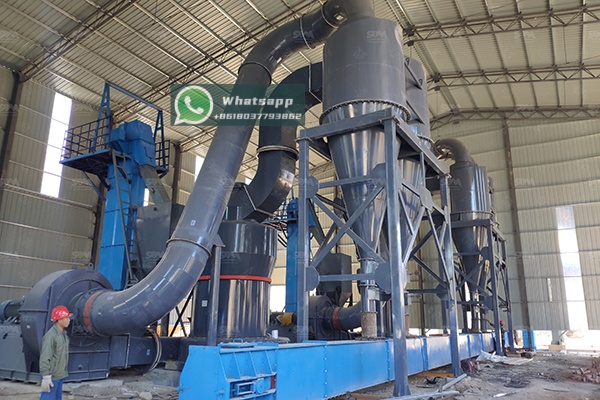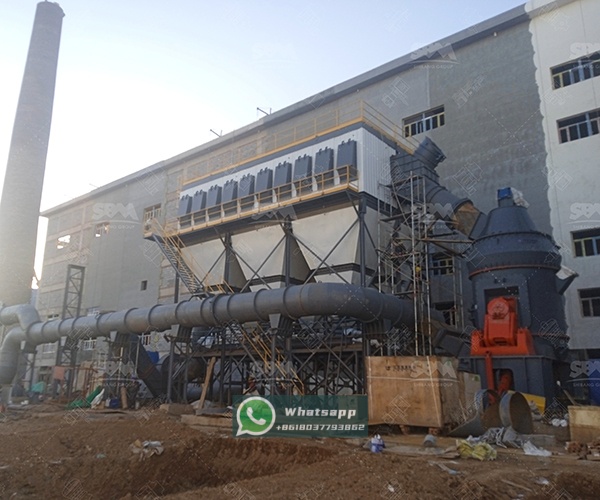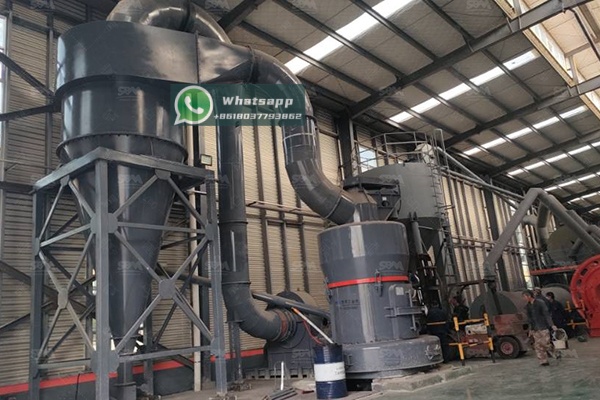The artificial stone industry has experienced exponential growth, driven by its versatility, aesthetic appeal, and cost-effectiveness compared to natural stone. At the heart of producing high-quality engineered quartz, agglomerate marble, and other composite stones lies a crucial raw material: finely ground marble powder. The quality, particle size distribution, and purity of this powder directly influence the final product’s strength, texture, color consistency, and overall durability. This article delves into the technical process of grinding marble for this specific application and highlights the advanced machinery required to achieve the precise specifications demanded by the industry.
In artificial stone production, marble acts as the primary filler, bound together by polymers (like polyester resin) or cement. The grinding process is not merely about reducing size; it’s about engineering a particle with specific properties.
Typically, the target fineness for marble powder in high-end artificial quartz surfaces ranges from 200 mesh (74 microns) to 325 mesh (44 microns), and even finer for specific effects. Achieving this consistently is a significant technological challenge.
Grinding marble, a relatively soft calcium carbonate-based rock, presents unique challenges that not all grinding equipment can handle efficiently.
Choosing the appropriate mill is critical to overcoming these challenges and producing a premium product. While traditional ball mills or Raymond mills are sometimes used, modern artificial stone manufacturers are increasingly turning to more advanced, integrated grinding systems.

Shanghai Zenith Machinery Co., Ltd., a leading manufacturer of ore and industrial grinding equipment, offers robust solutions specifically engineered to meet the stringent demands of the artificial stone industry. Their expertise in ultra-fine powder grinding makes them an ideal partner. Two of their products stand out for this application.
The LM Vertical Grinding Mill is an excellent choice for large-scale production of marble powder. Its unique design integrates crushing, grinding, powder selection, drying, and conveying into a single, compact unit. This reduces the plant’s footprint and simplifies the entire process flow. The material bed grinding principle, where rollers grind the material on a rotating table, results in lower energy consumption compared to ball mills and significantly reduced wear rates due to minimal metal-to-metal contact.
For artificial stone manufacturers looking to establish a high-volume production line, the LM Vertical Mill offers reliability, efficiency, and excellent control over product fineness.
| Model | Plate diameter (mm) | Capacity (t/h) | Output fineness (μm) | Max feed size (mm) | Main motor (kW) |
|---|---|---|---|---|---|
| LM130K | 1300 | 10-28 | 170-40 | <38 | 200 |
| LM190K | 1900 | 23-68 | 170-40 | <45 | 500 |
| LM280K | 2800 | 50-170 | 170-45 | <50 | 1250 |

When the product specification calls for exceptionally fine and consistent marble powder (e.g., 800 mesh to 2500 mesh), the XZM Ultrafine Grinding Mill is the perfect solution. This mill is specifically designed for producing super-fine powders and is widely recognized for its stability and high efficiency. It features a unique grinding ring and roller design that creates a curved path for the material, extending the grinding time and improving efficiency.
The multiple-head classifier system ensures that only particles meeting the precise fineness requirement leave the mill, while coarser particles are returned for further grinding. This makes the XZM Mill ideal for producing the high-quality, ultra-fine marble powders used in premium artificial stone surfaces where a flawless finish is critical.
| Model | Working diameter (mm) | Max feed size (mm) | Final size (mesh) | Output (kg/h) | Main motor power (kW) |
|---|---|---|---|---|---|
| XZM221 | Φ800 | ≤20 | 325-2500 | 500-4500 | 75 |
| XZM268 | Φ1680 | ≤20 | 325-2500 | 5000-25000 | 315 |
The success of an artificial stone manufacturing operation is deeply intertwined with the quality and consistency of its raw materials. Investing in the right grinding technology is not an operational expense but a strategic decision that impacts product quality, brand reputation, and bottom-line profitability. Shanghai Zenith Machinery Co., Ltd. provides technologically advanced and proven grinding solutions like the LM Vertical Mill and the XZM Ultrafine Mill, which are engineered to tackle the specific challenges of grinding marble powder. By leveraging such equipment, producers can achieve the precise control, high output, and low contamination levels required to excel in the competitive artificial stone market.
